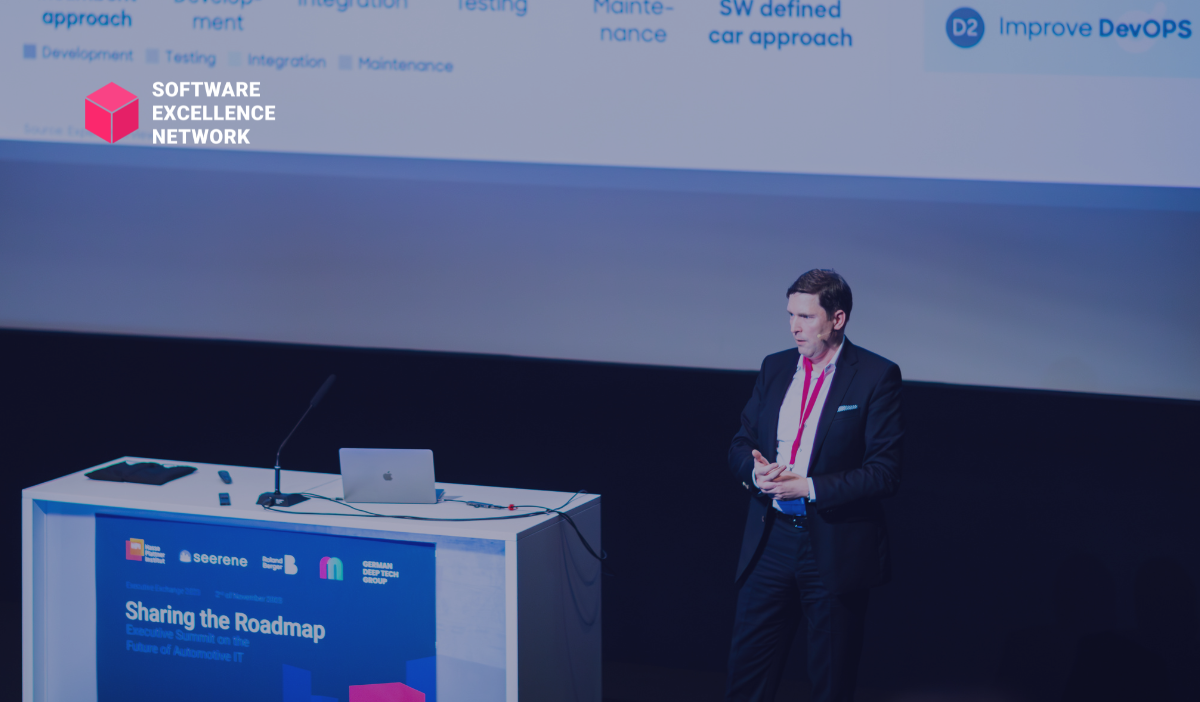
The last decade was a golden age for software development in the automotive industry. Flush with cash from surging profits and rising vehicle prices, original equipment manufacturers (OEMs) poured money into building expansive software teams and developing proprietary systems. But, as Markus Baum outlined during the Sharing the Roadmap executive exchange, this era of unbridled spending is drawing to a close.

Baum noted a stark reality: The times of spending as much as we want are over. He emphasized that the financial pressures arising from the transition to electric vehicles (EVs) will force OEMs to rethink how software is developed, funded, and managed.
The automotive industry is grappling with a dual challenge. On the one hand, regulations are driving OEMs to accelerate their transition to electric vehicles. On the other, EVs come with higher material costs—approximately €8,000 more per vehicle compared to internal combustion engine (ICE) cars in similar segments.
This gap squeezes profit margins, creating financial strain across the industry. Compounding this issue is the need to invest in future-proof software systems while managing these reduced margins.
As Baum explained, “We need to push electric vehicles into the market regardless of whether the customer is ready or whether we get any support from governments. That puts immense pressure on our overheads and software budgets.”
One of the biggest contributors to ballooning software costs is the fragmented approach many OEMs have taken. Baum’s team has tracked spending trends across the industry, and the trajectory is alarming. Software costs have doubled every five years. Much of this is driven by duplication of effort and a lack of standardization.
OEMs have allowed too many software variants, too much customization, and minimal reuse, as Baum said. If we continue in this way, the numbers will grow infinitely. The industry needs to cut complexity, standardize architectures, and collaborate across the board.
Baum outlined three transformative strategies to revolutionize software development:
Equally critical is investing in state-of-the-art toolchains and automated processes, such as continuous integration and deployment (CI/CD). Baum stressed that these tools are essential for improving efficiency and keeping pace with global startups that are often far leaner and more agile.
Underlying Baum’s vision is a call for greater collaboration within the industry. Cross-OEM partnerships, shared platforms, and open-source frameworks could unlock enormous savings while accelerating innovation.
We need to stop duplicating efforts across the industry, Baum urged.“The future lies in working together, whether through open standards or collaborative platforms. The more we align, the more sustainable our development processes will become.
Baum’s presentation was a wake-up call for an industry that has thrived on generous budgets and fragmented approaches. With financial pressures mounting, he made it clear that the path forward requires both technological innovation and disciplined management.
The crazy times of limitless spending are over, as Baum concluded. To thrive in this new era, we must prioritize efficiency, collaboration, and accountability. The future of automotive software depends on it.

About the Software Excellence Network
This masterclass was part of the Sharing the Roadmap automotive IT executive exchange, which was hosted by the Software Excellence Network. The mission of the Software Excellence Network is to find solutions to the core problems facing corporate software development via open dialogue and the exchange of ideas among top IT leadership and academia. Interested in finding out more? Click here.
A Note to Our Readers
This article provides a journalistic summary of the ideas shared by Markus Baum during his presentation. While we’ve highlighted the key concepts and innovations he discussed, the full depth of his insights and examples can only be appreciated by watching the complete session. If you’re intrigued by these ideas and want to hear them explained directly by the speaker, we encourage you to watch the full video of his presentation. If you have any questions or concerns, please contact us.
These Stories on Events/Webinars
August-Bebel-Str. 26-53
14482 Potsdam, Germany
hello@seerene.com
+49 (0) 331 706 234 0
Generative AI Seerene GmbH
August-Bebel-Str. 26-53
14482 Potsdam, Germany
hello@seerene.com
+49 331 7062340